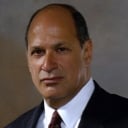Joel Cohen

September 07, 2010 | Law.com
What Good Is Remorse?Redemption through a showing of remorse is a common path in society -- but, ask Joel Cohen and Katherine A. Helm, what role does remorse play in a court of law? Can people get a second chance at being repatriated into the community if they are remorseful about their actions, after they've been caught and even convicted? Helm and Cohen examine a recent 2nd Circuit ruling that sheds some light on the issue.
By Joel Cohen and Katherine A. Helm
10 minute read
February 23, 2007 | New Jersey Law Journal
No Gatekeeper of JusticeThe conduct of the prosecutor in the case against Duke lacrosse players should be examined because it illuminates the ethical guideposts for a prosecutor.
By Bennett L. Gershman and Joel Cohen
4 minute read

September 14, 2007 | New York Law Journal
'Scopes': Subpoenaed by Your AdversaryJoel Cohen, a partner at Stroock & Stroock & Lavan and an adjunct professor at Fordham Law School, asks if, in a real-life courtroom confrontation that inspired "Inherit the Wind," Clarence Darrow didn't stray far from his ethical obligations in calling William Jennings Bryan to testify? And did Bryan act irresponsibly - even unethically - in allowing himself to be called?
By Joel Cohen
13 minute read

January 04, 2010 | Law.com
A New Year's Resolution for LawyersThink about the lawyers whose conduct appears to be "on the edge" but who are nonetheless largely ignored. Should questions arise about our own conduct precisely because of such willingness to let our colleagues' behavior go unchecked? The longer we avoid such questions, the more we place at risk our collective professional reputation, write Joel Cohen and Katherine Helm.
By Joel Cohen and Katherine A. Helm
7 minute read

December 17, 2010 | Law.com
WikiLeaks: We Don't Need Another 'Hero'How should Julian Assange be treated under the law for his repeated, voluminous WikiLeaks releases of sensitive information? Joel Cohen and Katherine A. Helm consider the issues.
By Joel Cohen and Katherine A. Helm
9 minute read
July 28, 2004 | New York Law Journal
Buying Victim SilenceJoel Cohen and James L. Bernard, partners at Stroock & Stroock & Lavan, ask if Michael Jackson's "deal" with his initial accuser "bought silence," raising the specter of witness tampering or bribery, how could it have been legal? And furthermore, since it was negotiated not by laymen but by top of the line attorneys, how could "buying off" the witness, or "asking to be bought off" have been ethical for those lawyers?
By Joel Cohen and James L. Bernard
11 minute read
February 28, 2003 | Law.com
E-Mailing Clients Is Under Increasing ScrutinySurprisingly, even in post-Enron America, most lawyers believe that because the attorney-client privilege is so sacred, it renders even their e-mail client communications impervious to sophisticated adversaries who seek them in discovery. Lawyers who reach the conclusion that their e-mail communications remain protected may not have considered a number of other potential factors.
By Joel Cohen and James L. Bernard
9 minute read
September 08, 2010 | Texas Lawyer
What Good Is Remorse?Harvard professor Marc Hauser rocked the science world last month when evidence surfaced indicating that he may have committed the ultimate sin of fabricating data. Given that Hauser is a leading expert in the field of moral psychology and author of the book "Moral Minds," the academic community is bewildered by his actions, including his tight-lipped admission of some "mistakes" (but not misconduct) in response to the scientific misconduct charges. Only if he were to remorsefully give a full and frank account of the his errors could the process start of repatriating him into the community in some form, his colleagues tell The New York Times.
By Joel Cohen and Katherine A. Helm
10 minute read

December 15, 2008 | New York Law Journal
Ethics and Criminal PracticeJoel Cohen, a partner at Stroock & Stroock & Lavan and teacher of professional responsibility at Fordham Law School, and Danielle Alfonzo Walsman, an associate at the firm, offer this hypothetical: Your client has just phoned, after having been served with a grand jury subpoena. He is scared out of his wits, though, fortunately, not directly vulnerable in the inquiry. The subject or target or "person of interest" of the subpoena is a shady "Mr. Smith" that your client has dealt with, and with whom he has a continuing course of business. Your client is deeply concerned that he may be compelled to give incriminating testimony against Smith, and disturbed that if he doesn't quickly tip him off about the subpoena, Smith will be even more upset when he eventually learns of it. Your client asks, "What should I do?"
By Joel Cohen and Danielle Alfonzo Walsman
12 minute read
Trending Stories
- 1Gibson Dunn Sued By Crypto Client After Lateral Hire Causes Conflict of Interest
- 2Trump's Solicitor General Expected to 'Flip' Prelogar's Positions at Supreme Court
- 3Pharmacy Lawyers See Promise in NY Regulator's Curbs on PBM Industry
- 4Outgoing USPTO Director Kathi Vidal: ‘We All Want the Country to Be in a Better Place’
- 5Supreme Court Will Review Constitutionality Of FCC's Universal Service Fund
More from ALM
- Legal Speak at General Counsel Conference East 2024: Match Group's Katie Dugan & Herrick's Carol Goodman 1 minute read
- Legal Speak at General Counsel Conference East 2024: Eric Wall, Executive VP, Syllo 1 minute read
- Legal Speak at General Counsel Conference East 2024: Virginia Griffith, Director of Business Development at OutsideGC 1 minute read



